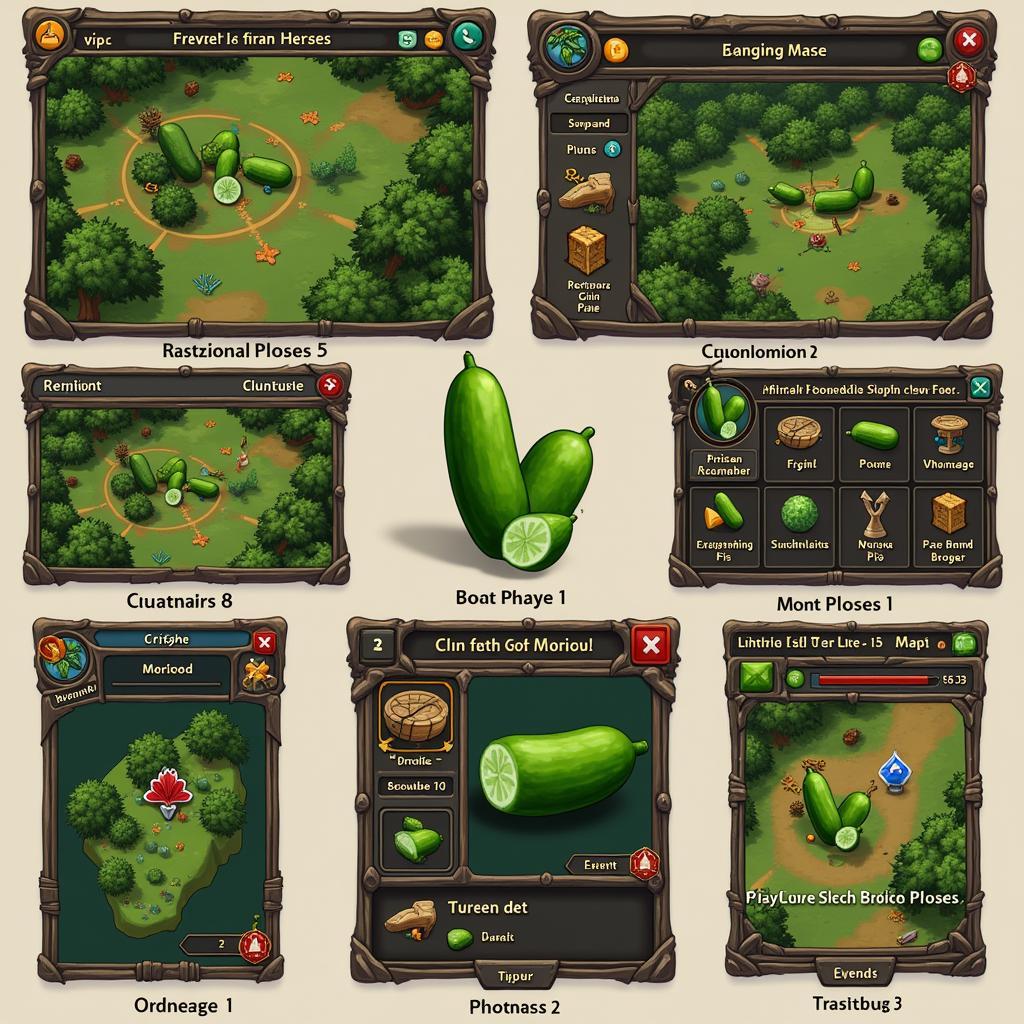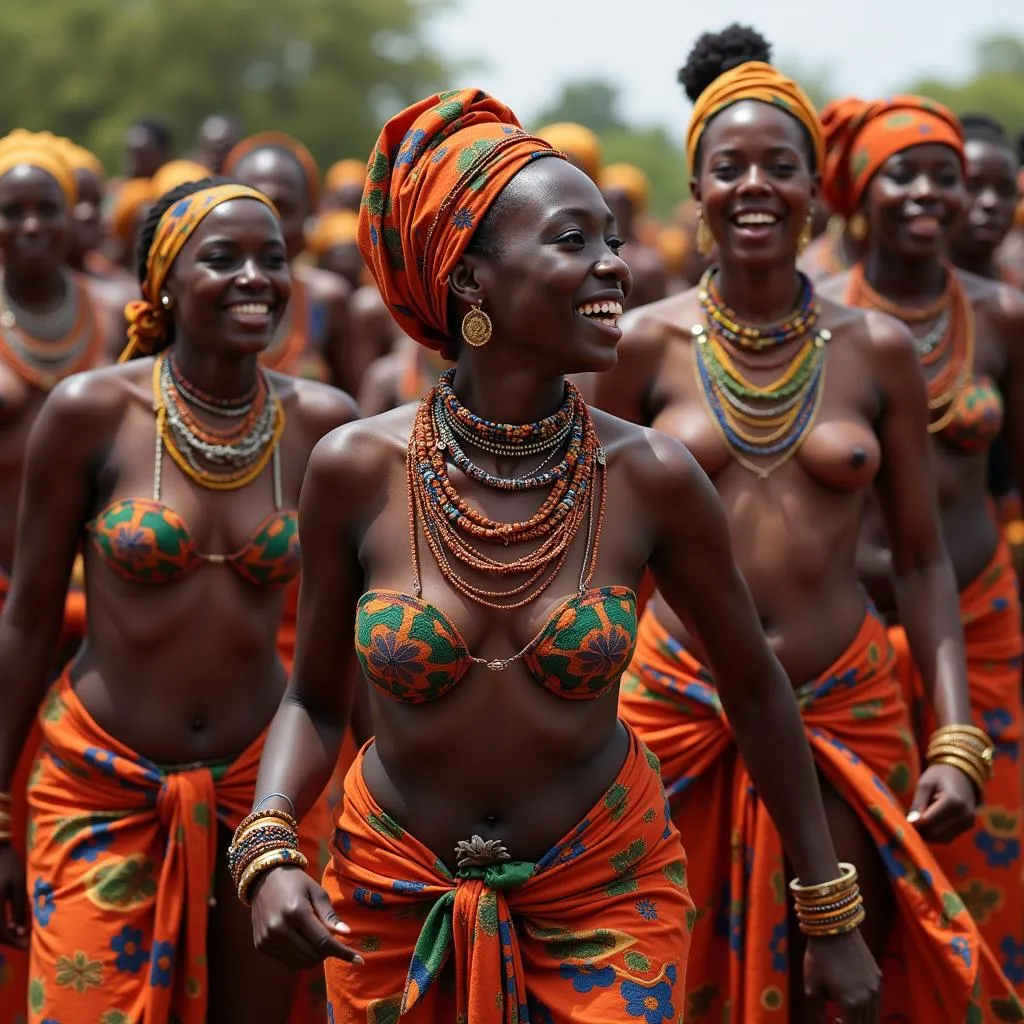African Feminism: A Movement for Equality and Empowerment
African Feminism is a powerful and diverse movement that has been challenging patriarchal structures and advocating for women’s rights for decades. This movement is unique in its intersectionality, addressing the specific challenges faced by women within the African context, including colonialism, poverty, and gender-based violence.
The Evolution of African Feminism
African feminism has its roots in the struggle against colonialism and the fight for independence. Women were instrumental in these movements, demanding not only political freedom but also social and economic equality.
The early feminist movements in Africa were often aligned with pan-Africanist ideologies, emphasizing the unity and shared experiences of African people. However, as the continent entered the post-colonial era, women began to articulate their own unique perspectives and experiences within the broader feminist discourse.
Key Figures in African Feminism
Several influential figures have shaped the trajectory of African feminism. These include:
- Flora Nwapa: A Nigerian novelist and feminist who wrote about the experiences of women in post-colonial Africa.
- Wangari Maathai: A Kenyan environmental activist and Nobel Peace Prize laureate who advocated for women’s rights and environmental sustainability.
- Michela Wrong: A British journalist and author who has written extensively about the challenges faced by women in Africa, particularly in conflict zones.
The Pillars of African Feminism
African feminism is characterized by its focus on:
- Intersectionality: Recognizing the interconnectedness of race, class, gender, and other identities in shaping women’s experiences.
- Cultural Sensitivity: Respecting the diverse cultural contexts and traditions of Africa while challenging patriarchal norms that oppress women.
- Economic Empowerment: Advocating for women’s access to education, employment, and economic resources.
- Reproductive Rights: Fighting for women’s control over their bodies and reproductive health.
- Ending Violence against Women: Working to eliminate all forms of violence against women, including domestic violence, sexual assault, and female genital mutilation.
Addressing the Challenges of African Women
African women continue to face significant challenges, including:
- Poverty: Many African women live in poverty, with limited access to education, healthcare, and economic opportunities.
- Gender-Based Violence: Violence against women is widespread in Africa, often rooted in deeply ingrained patriarchal attitudes.
- Limited Political Participation: Women are underrepresented in political leadership positions, contributing to a lack of voice and agency in decision-making.
- Cultural Practices: Some cultural practices, such as female genital mutilation, perpetuate harmful gender norms and undermine women’s rights.
The Future of African Feminism
Despite the challenges, the future of African feminism is bright. The movement is growing in strength and gaining greater international recognition. Young women are increasingly engaging in activism, advocating for their rights, and demanding change.
“African feminism is about reclaiming our voices and our power. It’s about challenging the status quo and building a future where women are equal partners in society.” – Dr. Abena Busia, Ghanaian academic and feminist.
FAQ
What are some of the key achievements of African feminism?
African feminists have achieved significant victories in areas such as access to education, women’s political participation, and the criminalization of female genital mutilation in many countries.
How can I support African feminism?
You can support African feminism by:
- Educating yourself: Learn about the history, issues, and challenges facing women in Africa.
- Supporting women-led organizations: Donate to or volunteer with organizations working to empower women in Africa.
- Advocating for policy change: Advocate for policies that address gender inequality and promote women’s rights.
- Sharing information: Spread awareness about African feminism and the work of its advocates.
What are some of the current trends in African feminism?
Current trends in African feminism include a focus on technology and digital activism, intersectional feminism, and the importance of women’s leadership.
What are some of the challenges faced by African feminists?
African feminists face many challenges, including:
- Patriarchal structures: Deeply ingrained patriarchal norms and attitudes can make it difficult to challenge gender inequalities.
- Lack of resources: Limited access to funding and resources can hinder the growth and impact of feminist movements.
- Political instability: Political instability and conflict can create an environment where women’s rights are often marginalized.
How is African feminism different from Western feminism?
African feminism differs from Western feminism in its emphasis on the intersectionality of race, class, and gender, its cultural sensitivity, and its focus on addressing the specific challenges faced by women in Africa.
What are some of the key issues facing African feminists today?
Some of the key issues facing African feminists today include:
- Violence against women: Gender-based violence remains a major concern in many African countries.
- Economic inequality: The economic gap between men and women remains a major challenge.
- Political representation: Women continue to be underrepresented in leadership positions.
How can I learn more about African feminism?
There are many resources available to learn more about African feminism, including:
- Books: “African Feminism” by Oyèrónké Oyěwùmí and “The Politics of Reproduction in Africa” by Oyèrónké Oyěwùmí are two excellent starting points.
- Journals: “African Studies Review” and “Gender and Development” are academic journals that publish articles on African feminism.
- Websites: The African Women’s Development and Communication Network (FEMNET) and the Women’s Media Center (WMC) are two organizations with websites that provide information about African feminism.
- Social media: Follow African feminists on social media to stay up-to-date on the latest news and events.
Conclusion
African feminism is a powerful and transformative movement that is shaping the future of the continent. It is a movement that celebrates the diversity and strength of African women while advocating for their rights and empowerment. By understanding and supporting African feminism, we can all contribute to creating a more just and equitable society for all.

